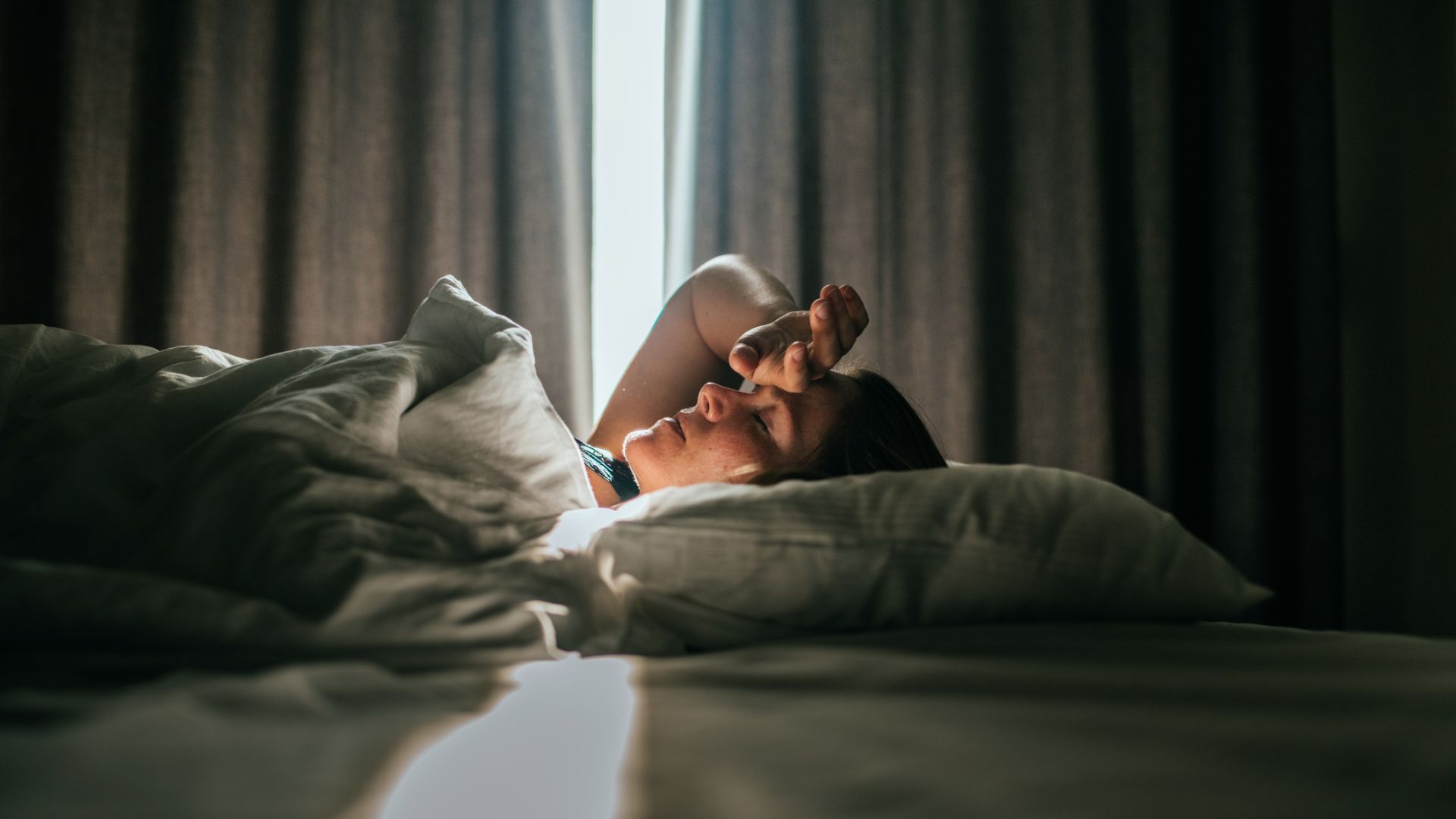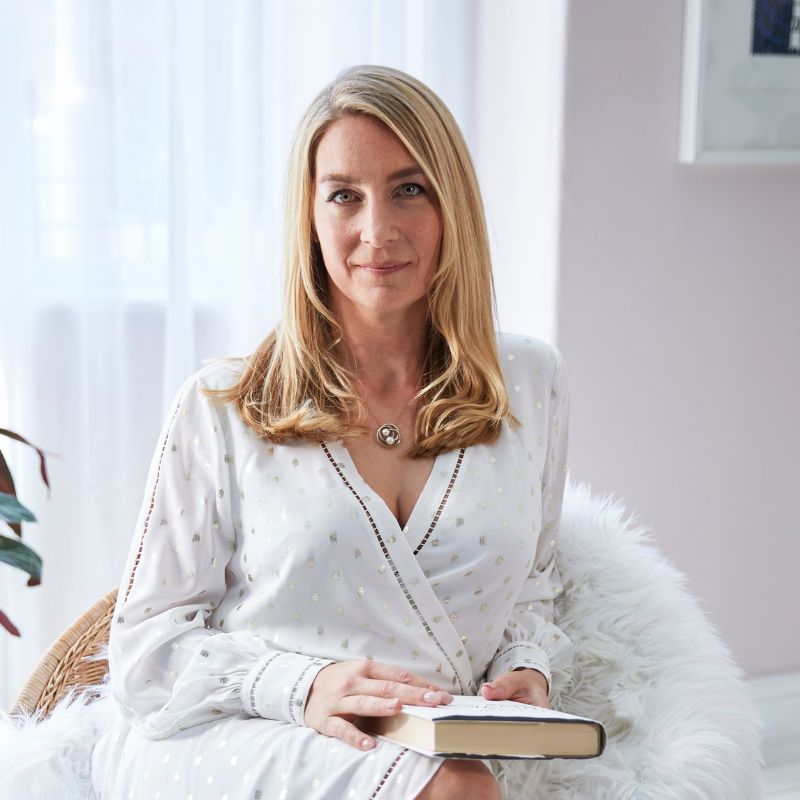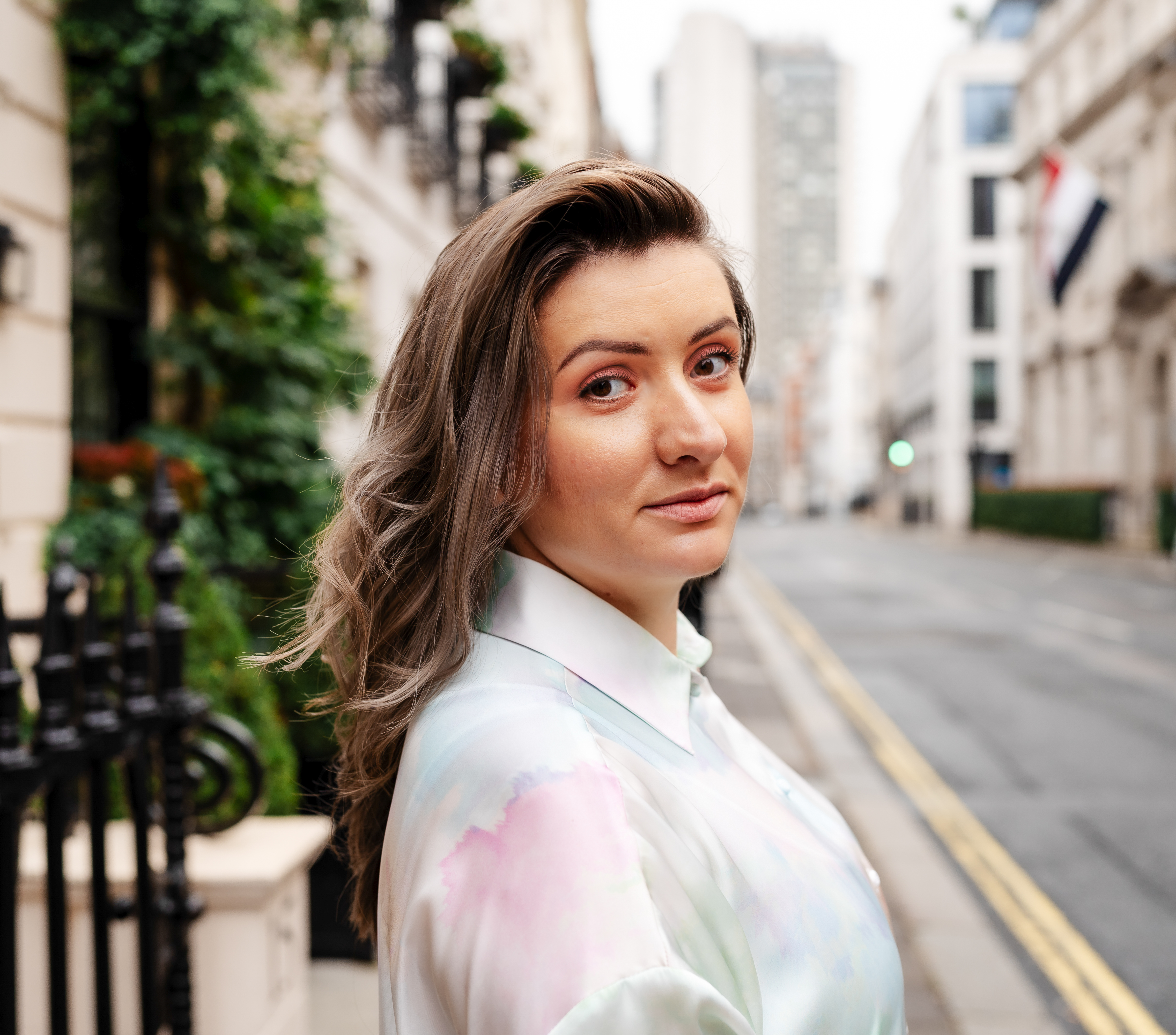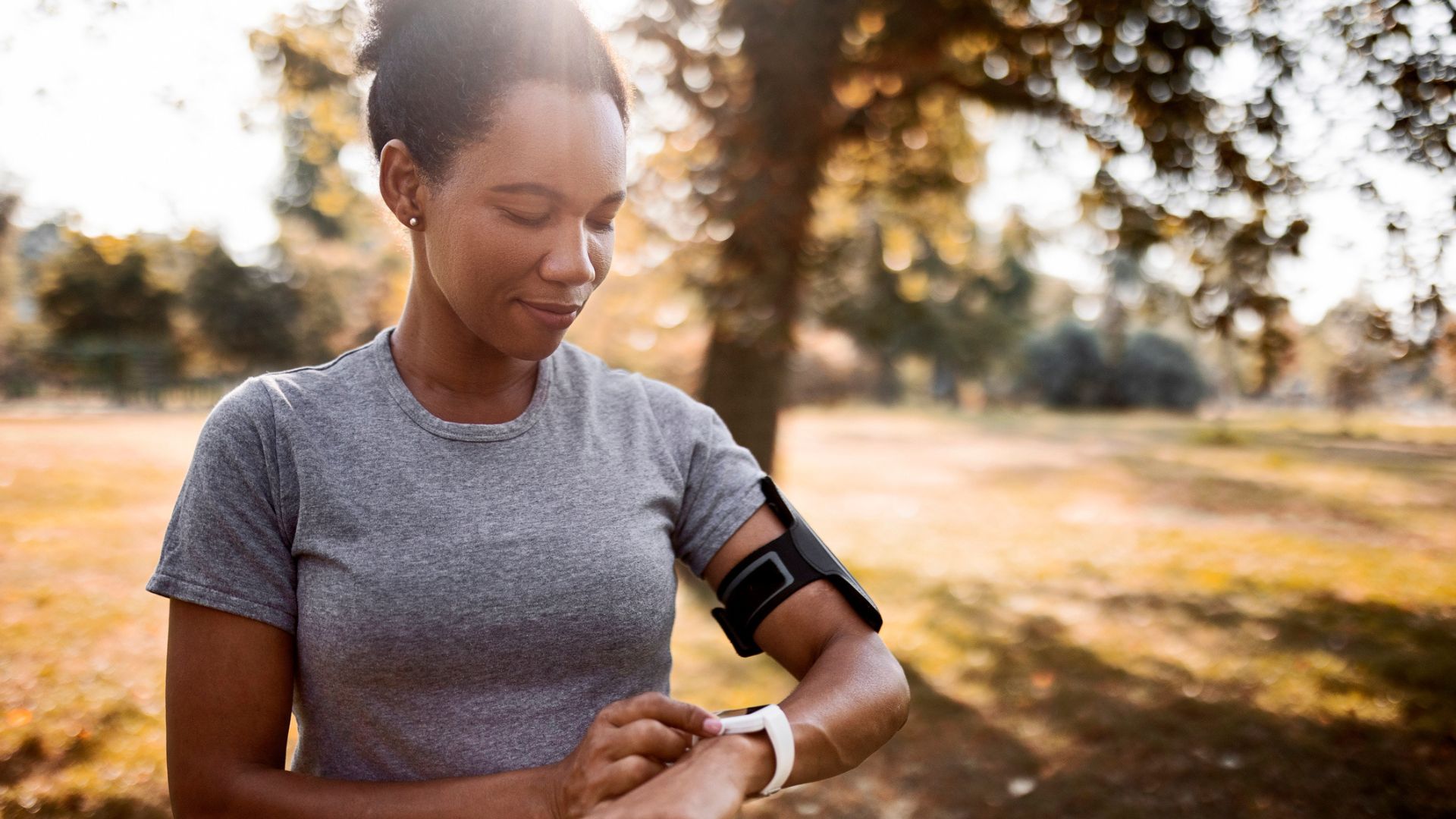As a sleep expert, these are the 9 things I would never do in the evening
Doctors, psychologists, and sleep therapists reveal the evening habits to avoid to get a good night's sleep


Looking to get a better night's sleep? While so-called 'perfect' sleep is somewhat of a myth, it is possible to make small changes to your nighttime routine and daily habits for improved sleep quality, the experts say.
Learning how to sleep better can be a tricky process. "As a sleep physiologist and consultant, one of the most frequent questions I encounter is: "What am I doing wrong that’s affecting my sleep?" The truth is, even small, seemingly harmless habits can have a profound impact on sleep quality, mainly because they can impact on the processes that regulate our sleep: our circadian rhythm (“body clock”) and our sleep drive," says Dr Ana Brito, a certified expert somnologist by the European Sleep Research Society.
Here, woman&home speaks to a selection of sleep experts - including doctors, therapists, and psychologists - to reveal the must-dos and the habits they'd recommend avoiding if you're looking to learn how to build a better bedtime routine.
1. Not get enough daylight
Frida Rångtell has a PhD in Neuroscience and Sleep from Uppsala University and is a scientific advisor for Napper. While most of us know that a dark bedroom is key for good sleep hygiene, she says one of the biggest mistakes people make when trying to sleep better is not getting enough daylight.
"In our modern lives, we can spend a lot of time indoors and natural light sources are often substituted with artificial light. Our bodies need to sense the difference between day and night to be healthy, and this daily rhythm is sensed mostly by fluctuations in light exposure during the day," she says.
"This means to be exposed to the strong outdoor daylight during the day, and more darkness during the evening and night, in the same way that natural light fluctuates during the day. The problem is that we don’t feel we lack daytime light exposure or nighttime darkness like we sense thirst or hunger. Therefore, we need to take active steps to support our light exposure rhythm."
To change this, she suggests going for an early morning walk first thing and keeping artificial lights low in the evening.
Sign up for the woman&home newsletter
Sign up to our free daily email for the latest royal and entertainment news, interesting opinion, expert advice on styling and beauty trends, and no-nonsense guides to the health and wellness questions you want answered.

Frida gained a PhD in Neuroscience and Sleep from Uppsala University in 2019. She is Napper’s in-house Sleep Educator and Scientific Advisor, passionate about sleep education and holds a Board position at the Swedish Sleep Research Society. In addition to this Frida also works as a sleep educator and public speaker who is dedicated to raising awareness around the importance of sleep.
2. Sleep later in autumn
With the autumn temperatures come shorter daylight hours and if you don't have an alarm clock wake-up time, it can be tempting to delay getting up when it's still dark outside. This is something to avoid though, warns Dr William Van Gordon, a chartered physiologist and an associate professor in Contemplative Psychology at the University of Derby.
"Although having a lie-in might be a good idea from time to time, try to avoid the trap of substantially increasing your overall amount of weekly sleep as we move into Autumn," he says. "As with many things, balance with our sleep habits is a good idea because just as consistently not getting enough sleep can precipitate health problems, so can regular oversleeping.”
Dr William Van Gordon is a Chartered Psychologist and Associate Professor of Contemplative Psychology at the University of Derby, where he currently chairs the School of Psychology Research Steering Group.
His research plays an important role in advancing the international Contemplative Psychology research agenda, to which he has contributed over 100 peer-reviewed papers, three books and over 120 other scholarly publications.
3. Turning on the heating before bed
As we start to prepare for the evenings getting colder and darker, turning on your heating right before bedtime can feel tempting - but this could be detrimental when it comes to your sleep, says Dr Lindsay Browning, psychologist, neuroscientist and sleep specialist for And So To Bed.
"The excess heat and lessening moisture in the air can contribute to poor quality sleep and as we know from research, the ideal bedroom temperature is 16-19 degrees Celsius to sleep comfortably."

Dr Lindsay Browning is a chartered psychologist and associate fellow of the British Psychological Society, a member of the British Sleep Society, a sleep specialist, author of the self-help sleep book, Navigating Sleeplessness, and the in-house expert for And So To Bed.
Dr Browning has a doctorate from the University of Oxford, where she investigated the relationship between worry and insomnia. She is passionate about helping people of all ages to sleep well, working with organisations and hotels to offer sleep consultancy and better sleep sessions.
4. Have a glass of wine less than 3 hours before bed
Having a glass of wine in the evening is a typical way to wind down for many people. However, the experts recommend staying away from alcohol for at least three hours before bed, otherwise you might find it impacts your sleep.
"A glass of wine might feel relaxing, but alcohol can disrupt your sleep cycle. While it may help you fall asleep faster on some occasions, it often leads to more fragmented sleep later in the night and affects the overall quality of your sleep," says Denise Iordache, a sleep therapist and the founder of JoySpace Therapy.
"Instead, try a caffeine-free herbal tea in the evening. Chamomile or lavender tea can be soothing and help set the stage for a peaceful night's rest," she says. Other alternatives to alcohol include sparkling water, kombucha, and juices.
While the NHS suggests it takes one unit of alcohol (125ml glass of white wine) an hour to pass through the body, this is dependent on personal factors like age and weight. Some people may find they need to leave more time than this between a glass of wine and bedtime.

Denise is a Cognitive Behavioural Hypnotherapist and sleep expert, specialising in helping women worry less and sleep better so that they perform at their best, both at work and in their personal life. She helps women build realistic, helpful, and healthy habits to tackle stress, have more energy and live joyfully.
5. Work out at night
It can be difficult to squeeze in a workout if you're strapped for time. However, if you're looking to get better sleep, somnologist Dr Ana Brito recommends staying away from the gym late in the evening.
"Exercise is essential for good sleep, but the timing matters. Exercising too close to bedtime can stimulate the body and increase your body core temperature, both of which can make it harder to fall asleep," she says.
"Ideally, our body temperature should go down about 2 degrees so that our body is within the perfect conditions to have a good night of sleep, so aim to finish your workout at least 3 hours before bedtime to allow your body enough time to wind down."
If you like to stretch before bed, find a routine on one of the best stretching apps that includes some bedtime yoga for a gentle winddown from the day.

Dr Ana Brito is a Certified Expert Somnologist by the European Sleep Research Society with 15+ years in sleep disorder treating. She received a Physiology Degree from Coimbra University and a Master Degree in Sleep Sciences from the Faculty of Medicine at Lisbon University. She has lectured in the UK and Portugal, whilst developing years of clinical and research experience within the NHS and private healthcare practices. Dr Brito is also a member of the American Academy of Sleep Medicine and the European sleep Research Society.

To avoid sleep disruption, the experts recommending working out earlier in the day.
6. Avoid power naps
Many of us avoid naps for fear of appearing lazy or 'ruining' our sleep that evening - but that's unlikely to happen, says sleep educator Frida Rångtell. In fact, she encourages naps, saying it could be one of the "necessary steps" for better productivity.
"Naps can have a positive effect on alertness and performance, and give a restorative feeling. They aren't for everyone but if you do feel a bit unfocused and tired in the afternoon, a power nap could be a good idea," she says.
But knowing how to nap is important. "Keep it short (20-30 minutes) and nap earlier in the day to prevent disruption to your nighttime sleep," says Dr Brito.
7. Eat spicy food before bed
What you eat and how well you sleep have more to do with each other than you might think, says Dr Browning. "Poor sleep can affect our nutritional choices, which in turn, can affect sleep. As poor sleep adds up, we’re more inclined to opt for food that requires minimal effort - like takeaways or microwave meals - which is often less nutrient-dense, further trapping us in this cycle," she says.
"Also, if you eat spicy, fatty or sugary foods near bedtime, your body will have to work extra hard to digest these foods, which can cause you to wake up more frequently in the night and disrupt your sleep."
8. Scroll in the bedroom
"It's tempting to scroll through your phone or watch television to wind down in the evenings but the blue light from screens [and the stimulating content on these devices] can actually make you more alert than relaxed," says sleep therapist Denise Iordache.
"For people over 45, especially those going through hormonal changes like menopause, this effect can be even more pronounced," she notes. "Try to create a calming bedtime routine that doesn't involve screens. Reading a physical book, taking a warm bath, or practising gentle stretches can help signal to your body that it's time to sleep."
9. Drink coffee after lunch
"Many people underestimate how long caffeine stays in the system," warns Dr Ana Brito. "Caffeine has a half-life of about 5-6 hours, meaning that it can remain in your bloodstream well into the evening, keeping you alert and reducing the time spent in deep sleep, so even an afternoon cup of coffee or an energy drink can interfere with your ability to fall asleep at night."
The somnologist recommends avoiding all caffeine in the six to eight hours before bedtime to ensure it doesn't interfere with your sleep cycle. Instead, opt for one of the many caffeine alternatives, such as herbal or decaffeinated tea.
10. Believe that you have to live with uncomfortable menopause symptoms
One of the biggest sleep mistakes women going through menopause can make is thinking they have to live with uncomfortable and disruptive symptoms of perimenopause and menopause because it's a "natural point" in life.
This is a commonly-held belief, the experts say, but addressing the uncomfortable symptoms is key to a better night's sleep.
"Menopause can bring a host of changes that significantly impact sleep, such as hot flashes, night sweats, mood swings, and hormonal imbalances. For many people, these symptoms can disrupt sleep patterns, making it harder to fall asleep or stay asleep through the night," says Iordache. "Ignoring these changes can lead to chronic sleep issues, so it's essential to acknowledge them and discuss them with your GP or healthcare practitioner."
11. Try and have 'perfect' sleep
We live in a world of fitness trackers and wearables that reveal so much about our sleep habits - what we're doing right and what we're doing wrong. This can often leave us feeling like we need to achieve 'perfect' sleep - whether that's aiming to achieve a certain sleep score on your pick of the best Fitbits or wanting a solid eight hours of uninterrupted sleep.
"The problem is, the more we try to sleep, the harder it gets, and when we view sleep as something that we need to perform, it can instead become difficult to sleep. There is great value in taking steps to improve our sleep, but it is also valuable to expand our view to a dimension that is less focused on pressure to perform and is less judgmental," says sleep educator Frida Rångtell.
Dr William Van Gordon agrees. "In the event you can't get to sleep or wake up too early, it's important to stay relaxed and not make too big a deal of it. If you have trouble falling asleep, enjoy simply resting in bed or try consciously watching your breathing whilst lying down. Try to accept that you will sleep when you sleep and that if the possibility arises, you can try to take a short nap later in the day," he says.

Grace Walsh is woman&home's Health Channel Editor, working across the areas of fitness, nutrition, sleep, mental health, relationships, and sex. She is also a qualified fitness instructor. In 2025, she will be taking on her third marathon in Brighton, completing her first ultra marathon, and qualifying as a certified personal trainer and nutrition coach.
A digital journalist with over seven years experience as a writer and editor for UK publications, Grace has covered (almost) everything in the world of health and wellbeing with bylines in Cosmopolitan, Red, The i Paper, GoodtoKnow, and more.
-
 Dr Amir Khan reveals the 5 symptoms you should 'never' ignore, no matter how 'vague' they are
Dr Amir Khan reveals the 5 symptoms you should 'never' ignore, no matter how 'vague' they areDr Amir Khan, a GP who often appears on ITV's Lorraine, took to Instagram this week to share the symptoms he'll always take a second look at
By Grace Walsh
-
 Head to Hobbs for holiday-ready linen and the most elegant summer dresses you’ll find on the high street
Head to Hobbs for holiday-ready linen and the most elegant summer dresses you’ll find on the high streetWondering where to shop for a chic summer wardrobe? Hobbs has you covered
By Caroline Parr